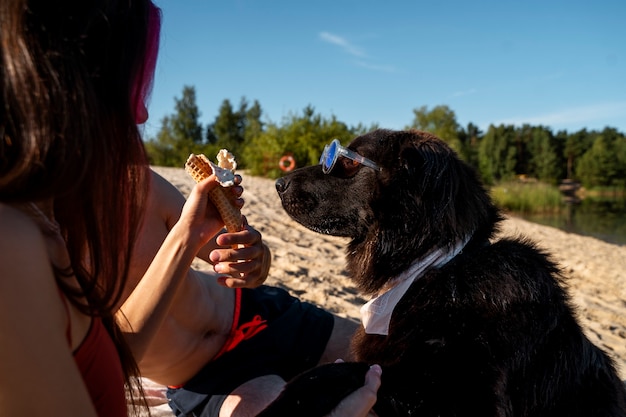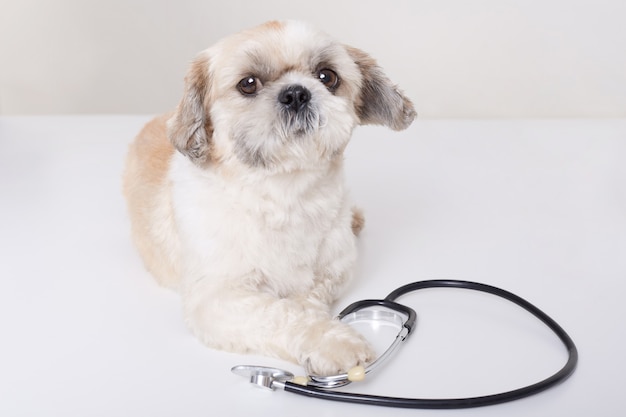How to Prevent Heatstroke in Pets During Lexington’s Humid Summers


How to Prevent Heatstroke in Pets During Lexington’s Humid Summers
Summer in Lexington means long, sunny days and plenty of outdoor adventures for pets and their families. However, the season’s high temperatures and humidity also bring a serious risk: heatstroke in pets. Heat-related emergencies can affect dogs, cats, horses, and even exotic animals, especially during the humid months that Lexington and surrounding communities experience. Whether you’re taking your dog for a midday walk, letting your cat lounge in a sunbeam, or caring for horses in the pasture, understanding how to prevent heatstroke in pets is essential. In this guide, Green Tree Animal Hospital, located at 4371 Old Harrodsburg Road, Suite 140, Lexington, KY 40513, shares practical tips tailored for our region’s unique climate. We’ll explain the warning signs of heatstroke, why pets in hot weather in Lexington are especially vulnerable, how to help your pet if you suspect heat stress, and steps you can take to keep them safe all summer long.
As your trusted local veterinary team, we are committed to supporting lifelong wellness for your pets. If you are concerned about your pet’s risk or want to learn more about summer health strategies, scheduling a wellness examination is a proactive way to safeguard their health during the hottest months. Let’s explore how to keep your pets cool, comfortable, and healthy in Lexington’s challenging summer climate.
Recognizing Signs of Heatstroke in Lexington Pets
Heatstroke happens when a pet’s body temperature rises above a safe level and cannot cool down efficiently. This is a medical emergency that often develops quickly, so recognizing the early signs can make a life-saving difference for pets in hot weather in Lexington. Key symptoms include excessive panting that won’t stop even after resting, drooling more than usual, and appearing weak or disoriented. Other warning signs are red gums, vomiting or diarrhea, and in severe cases, collapse or seizures.
For horses, signs of heatstroke might include rapid breathing, sweating excessively or suddenly stopping sweating, muscle tremors, and an unsteady gait. Cats, though often less obvious, may hide, breathe with their mouths open, or appear unusually lethargic. Small exotic pets and birds can also develop heat stress, often displaying rapid breathing or appearing listless.
If you notice any of these symptoms, especially during peak summer afternoons or after exercise, your pet may be at risk for heatstroke. It’s important to act quickly and seek veterinary care, as untreated heatstroke can lead to organ failure or even be fatal. The risk is especially high in brachycephalic (flat-faced) breeds, older pets, and those with underlying health issues. Always remember, if you’re unsure whether your pet’s symptoms are serious, it’s better to err on the side of caution and contact a veterinarian near you.
Why Pets in Hot Weather in Lexington Face Extra Risk
Lexington’s summer weather is unique because of its high humidity paired with rising temperatures. While hot days are challenging on their own, humidity prevents pets from effectively cooling themselves. Dogs, for example, primarily rely on panting to dissipate heat. High moisture levels in the air make panting less effective, so their bodies retain more heat. Cats, horses, and other animals experience similar struggles in humid conditions.
Certain factors can make pets more susceptible to heatstroke in Lexington. Age is important, as young puppies, kittens, senior pets, and geriatric horses often have a harder time regulating body temperature. Breeds with thick coats or flat faces, such as Bulldogs, Pugs, Persians, or Shih Tzus, are at greater risk. Additionally, overweight pets or those with pre-existing heart or respiratory issues are more vulnerable during heatwaves. Horses working or exercising in the midday sun, and pets left outdoors without sufficient shade or water, are also more likely to overheat.
Regional practices, such as walking dogs on hot pavement or transporting animals in unventilated vehicles, can quickly lead to emergencies. Even a short time in a parked car, even with windows cracked, can be fatal for pets in hot weather in Lexington. Being aware of these local risks helps pet owners take preventive steps and recognize when to seek veterinary services near me.
Treatment and Professional Care for Heatstroke in Lexington Pets
If you suspect your pet is experiencing heatstroke, immediate action can save their life. Begin by moving your pet to a cooler, shaded area away from direct sunlight. Offer small amounts of cool (not cold) water, and use damp towels on their paws, ears, and belly to help lower their body temperature. Do not use ice or very cold water, as this can cause blood vessels to constrict and make the problem worse. For horses, walking them slowly in a shaded area and offering water is important, but do not force them to drink.
Veterinary professionals at Green Tree Animal Hospital have specialized equipment and training to provide advanced care for heatstroke. Treatment approaches involve intravenous fluids to rehydrate and cool your pet, oxygen therapy if breathing is compromised, and medications to support organ function. In severe cases, hospitalization may be required for ongoing monitoring and supportive care. If your pet’s symptoms do not improve within minutes or if they worsen, it is critical to seek immediate veterinary attention.
Prompt intervention by a veterinarian near me can help reduce the risk of long-term complications, such as kidney failure, brain swelling, or blood clotting disorders. Our team of veterinarians is experienced in treating heat-related emergencies for dogs, cats, horses, and exotic pets. We are here to guide you through recovery and provide support every step of the way. If your pet has experienced heatstroke previously, we recommend a follow-up comprehensive pet exam to assess for any lingering effects and tailor preventive strategies for the future.
Preventing Heatstroke in Pets: Home Care Tips for Lexington Pet Owners
Prevention is the best way to protect pets in hot weather in Lexington from the dangers of heatstroke. The most effective steps include providing unlimited access to fresh, cool water at all times and ensuring pets have access to shade when outdoors. On especially hot and humid days, keep walks and play sessions short, and schedule them for early morning or late evening when temperatures are lower.
For dogs and cats, avoid leaving them outside during peak heat hours or confined in spaces with poor ventilation. Grooming can help remove excess undercoat, but never shave breeds with double coats, as their fur protects against both heat and sunburn. For horses, make sure they have shelter in pastures and provide salt licks or electrolyte supplements as recommended by your veterinarian. Exotic pets should be kept in well-ventilated enclosures and away from direct sunlight.
Many pet owners also benefit from enrolling in wellness plans for preventive care, which include regular checkups designed to monitor your pet’s health and catch early signs of heat stress before they become emergencies. These preventive care services in Lexington can be especially valuable during summer months, as they allow you to discuss tailored strategies with your veterinary team.
When planning summer outings or vacations, research pet-friendly facilities and take extra precautions during travel. Never leave pets unattended in vehicles, and always bring extra water and portable bowls. Simple habits, such as testing the pavement with your hand before walking your dog or providing cooling mats indoors, can make a significant difference.
When to Seek Veterinary Care for Heatstroke in Lexington
Knowing when to call your veterinarian is essential for the health and safety of your pet. If your pet exhibits signs of heatstroke, such as uncontrolled panting, drooling, weakness, vomiting, or collapse, seek veterinary services near me immediately. Do not wait for symptoms to improve on their own, as delays can lead to permanent organ damage or death.
If you are ever unsure about your pet’s condition, it is always best to err on the side of caution and contact your local veterinary team. For pets with ongoing health conditions, a history of heatstroke, or those taking medications that affect temperature regulation, schedule an appointment to discuss summer safety strategies.
Green Tree Animal Hospital’s team of veterinarians is dedicated to providing urgent care and preventive services in Lexington and surrounding communities. We encourage you to be proactive by scheduling a wellness examination, especially if your pet is at higher risk or if you have questions about their summer care routine.
Safeguarding Your Pets During Lexington’s Hottest Months
Heatstroke in pets can be frightening, but with the right knowledge and preventive steps, it is largely avoidable. By understanding the unique challenges that come with pets in hot weather in Lexington, you can help your furry, feathered, or hooved friends stay healthy and happy all season long. Regular checkups, plenty of shade and water, and vigilant observation for warning signs make a real difference.
If you have concerns or want to ensure your summer plans are safe for your pets, schedule an appointment with our veterinary professionals at Green Tree Animal Hospital. Our team is passionate about keeping your companions healthy year-round, and we are always available to answer your questions or provide advanced care when you need it most. Whether you are searching for a quality vet near me or want to learn more about preventive care services in Lexington, we are here to help.
To schedule your pet’s next visit or inquire about wellness plans for preventive care, call us at (859) 223-2221 or visit our clinic at 4371 Old Harrodsburg Road, Suite 140, Lexington, KY 40513. Your pet’s well-being is our top priority—let’s work together to keep them safe and cool during Lexington’s warmest days.
This blog is intended for informational purposes only and should not replace professional veterinary advice. If you suspect your pet is experiencing a medical emergency, contact your veterinarian or seek immediate care.






_corporate_logo-1920w.webp)
















